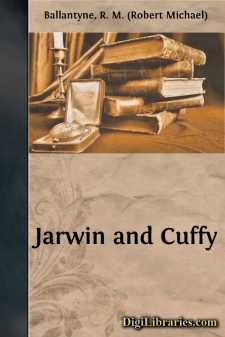Categories
- Antiques & Collectibles 13
- Architecture 36
- Art 48
- Bibles 22
- Biography & Autobiography 815
- Body, Mind & Spirit 144
- Business & Economics 28
- Children's Books 18
- Children's Fiction 14
- Computers 4
- Cooking 94
- Crafts & Hobbies 4
- Drama 346
- Education 58
- Family & Relationships 59
- Fiction 11834
- Games 19
- Gardening 17
- Health & Fitness 34
- History 1378
- House & Home 1
- Humor 147
- Juvenile Fiction 1873
- Juvenile Nonfiction 202
- Language Arts & Disciplines 89
- Law 16
- Literary Collections 686
- Literary Criticism 179
- Mathematics 13
- Medical 41
- Music 40
- Nature 179
- Non-Classifiable 1768
- Performing Arts 7
- Periodicals 1453
- Philosophy 65
- Photography 2
- Poetry 896
- Political Science 203
- Psychology 44
- Reference 154
- Religion 515
- Science 126
- Self-Help 85
- Social Science 83
- Sports & Recreation 34
- Study Aids 3
- Technology & Engineering 59
- Transportation 23
- Travel 463
- True Crime 29
Our website is made possible by displaying online advertisements to our visitors.
Please consider supporting us by disabling your ad blocker.
The Pirate City An Algerine Tale
Categories:
Description:
Excerpt
Opens the Tale.
Some time within the first quarter of the present nineteenth century, a little old lady—some people would even have called her a dear little old lady—sat one afternoon in a high-backed chair beside a cottage window, from which might be had a magnificent view of Sicilian rocks, with the Mediterranean beyond.
This little old lady was so pleasant in all respects that an adequate description of her is an impossibility. Her mouth was a perfect study. It was not troubled with anything in the shape of teeth. It lay between a delicate little down-turned nose and a soft little up-turned chin, which two seemed as if anxious to meet in order to protect it. The wrinkles that surrounded that mouth were innumerable, and each wrinkle was a distinct and separate smile; so that, whether pursing or expanding, it was at all times rippling with an expression of tender benignity.
This little old lady plays no part in our tale; nevertheless she merits passing introduction as being the grandmother of our hero, a Sicilian youth of nineteen, who, at the time we write of, sat on a stool at her feet engaged in earnest conversation.
“Grandmother,” said the youth in a perplexed mood, “why won’t you let me go into the Church instead of brother Lucien? I’m certain that he does not want to, though he is fit enough, as far as education goes, and goodness; but you know well enough that he is desperately fond of Juliet, and she is equally desperate about him, and nothing could be more pleasant than that they should get married.”
“Tut, child, you talk nonsense,” said the old lady, letting a sigh escape from the rippling mouth. “Your father’s dearest wish has always been to see Lucien enter the Church, and although Juliet is our adopted child, we do not intend to interfere with the wishes of her uncle the abbot, who has offered to place her in the convent of Saint Shutemup. As to you taking Lucien’s place,”—here the mouth expanded considerably—“ah! Mariano, you are too foolish, too giddy; better fitted to be a sailor or soldier I should think—”
“How!” interrupted Mariano. “Do you then estimate the profession of the soldier and sailor so low, that you think only foolish and giddy fellows are fit for it?”
“Not so, child; but it is a school which is eminently fitted to teach respect and obedience to foolish and giddy fellows who are pert to their grandmothers.”
“Ah! how unfair,” exclaimed Mariano, with assumed solemnity; “I give you good advice, with gravity equal to that of any priest, and yet you call me pert. Grandmother, you are ungrateful as well as unjust. Have I not been good to you all my life?”
“You have, my child,” said the little old lady; “very good—also rather troublesome, especially in the way of talking nonsense, and I’m sorry to find that although your goodness continues, your troublesomeness does not cease!”
“Well, well,” replied the youth, with a sprightly toss of the head, “Lucien and I shall enjoy at least a few weeks more of our old life on the blue sea before he takes to musty books and I to the stool of the clerk....












